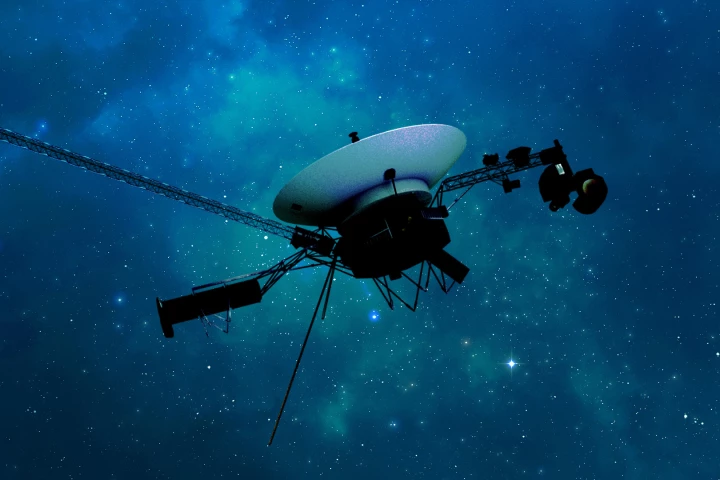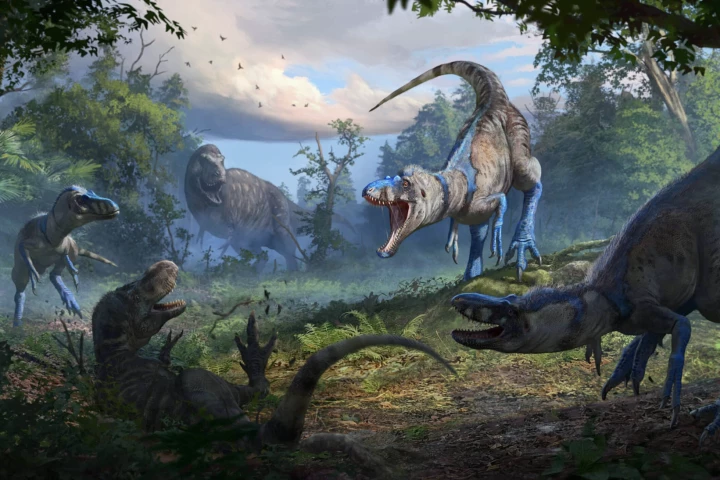Science
The latest in science news, from the depths of space to the quantum realm.
Top Science News
-
For nearly a century, a strange band of 5,200 holes carved into a hillside has defied explanation. Stretching for nearly a mile along the edge of the Pisco Valley, Monte Serpe – "serpent mountain" – may have finally revealed its secrets to scientists.
-
As it heads out of the solar system never to return, the deep space probe Voyager 1 is headed for yet another cosmic milestone. In late 2026, it will become the first spacecraft to travel so far that a radio signal from Earth takes 24 hours, or one light day, to reach it.
-
Archeologists say they have solved the 6,000-year-old mystery of Armenia’s “dragon stones" – massive carved monoliths scattered across high-altitude slopes and pastures where no ancient settlements ever existed. It's a story of worship and water.
Load More
Latest Science News
-
'Microneedling' of plants could boost growth and reduce fertilizer waste
January 04, 2026 | Malcolm AzaniaA new thumb-patch of dissolvable microneedles injects biofertilizer directly into plant leaves. In lab tests, kale and choy sum grew taller and faster with bigger leaves and shoot biomass, using 15% less biofertilizer. -
The mystery of Japan’s underwater 'crop circles' has a romantic twist
January 03, 2026 | Bronwyn ThompsonIn 1995, divers first noticed a group of bizarre sandy "crop circles" on the seabed near southwest Japan. But it took decades for scientists to identify the marine artists behind them – and why they were building such geometrically precise structures. -
Neanderthals weren’t picky meat eaters – they munched on maggots, too
December 31, 2025 | Jay KakadeUsing chemical clues from Neanderthal bones, researchers have placed them at the top of the food chain, alongside apex predators like lions. However, until now, experts have been missing out on one of their key, fat-rich, food sources: Maggots. -
Neanderthals were actually making fire 400,000 years ago
December 30, 2025 | Jay KakadeOnce thought an exclusive human skill, the ability to make fire on demand has long been seen as a turning point in our evolutionary story. But new research suggests Neanderthals also mastered fire-making hundreds of thousands of years before Homo sapiens. -
The year that changed how we see the world around us
December 30, 2025 | Bronwyn ThompsonIt's that time of year – and my personal favorite corner of science to look back on – when we recap the many fascinating discoveries in the plant and animal kingdom in 2025. Orcas have again made news, but no luxury yachts were hurt in the process. -
The 'Hell-Plant' of Death Valley offers hope to a hotter world
December 29, 2025 | Malcolm AzaniaExtremophilic Tidestromia oblongifolia alters its own photosynthesis to thrive in heat that would kill most plants. By reorganizing its cells and reshaping its chloroplasts to keep producing energy, is it the future of GMO crops in climate chaos? -
Bio-mimicry? Try 'beaver-mimicry' dams to offset climate chaos
December 28, 2025 | Malcolm AzaniaHuman-woven "beaver dams" do more than store water. They help waterways recover from climate alteration, lower water temperatures, enhance flood plain connections prevent wildfire spread, and generate increased biodiversity. -
Ancient coffins clinging to cliffs are no longer a mystery
December 27, 2025 | Bronwyn ThompsonHigh on sheer cliffs in China, ancient coffins are wedged into rock faces hundreds of feet above the ground. These dramatic burials, now re-examined using ancient DNA, point to a broader practice where disparate cultures all had their own "sky graves." -
Digging up the past: Important dinosaur discoveries of the year
December 25, 2025 | Bronwyn ThompsonDinosaurs may be long extinct, but 2025 made it clear that they’re anything but settled science. New fossils, reanalyses of famous specimens and increasingly sophisticated tools have helped us learn more about how they lived, moved, fed and evolved. -
Watch: World's biggest snowman dwarfs city in northeastern China
December 24, 2025 | Bronwyn ThompsonIf you're chionoandrophobic, we recommend looking away now. Standing 62 ft tall, 46 ft long and 36 ft wide, 2025's largest snowman has been erected in China. The smiling icy monster required 124,000 cubic feet of snow, and has become an instant hit.
Load More












